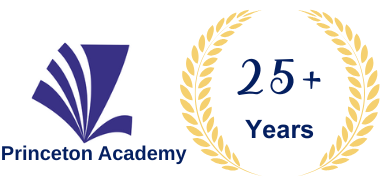📌Introduction
Customers and communities are demanding more transparency and organizations are increasingly being evaluated for the impact they have on society and the environment. Taking a proactive approach to sustainability can help organizations gain a competitive advantage while improving the world we live in.
The aim of this Sustainable workshop is to develop understanding of sustainable business by exploring changing relationships between businesses, communities and the environment around the world. This workshop aims to investigate the impact of sustainability on management practice through critical evaluation of corporate activity, drawing on a range of case study examples.
It aims to encourage sustainability thinking, challenging delegates to articulate creative ideas for how companies might align resource allocation with environmental and social responsibilities, building a positive climate for engaging people in organisations with sustainability issues.
It will discuss the emergence of, and rationale for employee engagement, encouraging delegates to reflect on how sustainability challenges are affecting, and being affected by business activity. The course will consider how management’s responsibility to shareholders for delivering financial returns might be balanced with meeting wider stakeholder expectations, highlighting mutual benefits to people, organisations and economies.
This workshop help delegates reflect on how sustainability policies might be integrated with business strategy and operations, and how this may link with competitiveness and brand integrity.
🎯Course Objectives
Better decision-making and time / resource allocation – leading to improved
- long-term organisational performan ce
- Introduction of sustainability into all levels of the organisation
- Improved efficiency at strategic and operational levels
- Lower levels of operating cos ts
- Better relationships with suppliers
- More effective programme and project implementation by managers
🌿 Environment
- Natural Hazards and Disaster Preparedness
- Green Products & Sustainable Design
- Air Emissions and Air Quality Control
- Energy Efficiency and Renewable Energy Use
- Water Conservation and Management
- Hazardous Substances Management
- Waste Segregation and Disposal Practices
- Soil and Groundwater Protection
- Climate Change and Carbon Footprint
- Occupational Health & Safety (Environmental Impact)
👥 Social
- Employee and Consumer Safety
- HR Best Practices & Benchmarking
- Diversity, Equity & Inclusion (DEI)
- Fair Disclosure and Transparent Communication
- Community Engagement and Social Impact
- Health and Wellness Initiatives
- Ethical Dilemmas: Case Discussions
- Business Ethics and Integrity
- Group Exercises on Social Scenarios
🏛 Governance
- Corporate Governance Principles
- Code of Conduct and Ethics
- Risk Management and Internal Controls
- Anti-Bribery and Anti-Corruption Policies
- Compliance with Regulatory Frameworks
- Stakeholder Rights and Responsibilities
- Transparency and Accountability Mechanisms
- Innovation and Responsible Leadership
- ESG Reporting Standards (e.g., GRI, SASB)
COURSE SCHEDULE & FEES
DOWNLOAD COURSE CONTENTS
Please click the button below to download the course content. You'll need to provide your contact information to receive the document.
INCOMPANY/GROUP TRAINING REQUEST
Why Choose Our Incompany Program?
- 🎯 Tailored content specific to your business goals
- 👥 Train entire teams together, saving time and cost
- 📍 Delivered at your location or virtually
- 📅 Flexible scheduling to suit your timelines
- 📈 Increase retention and application of skills
